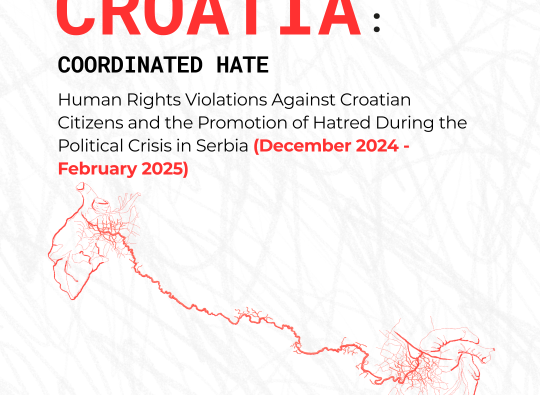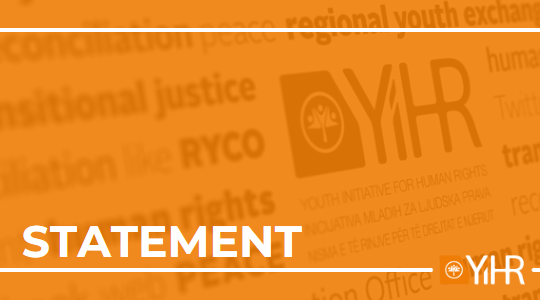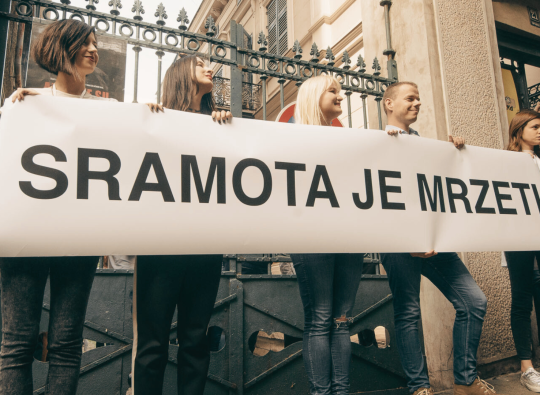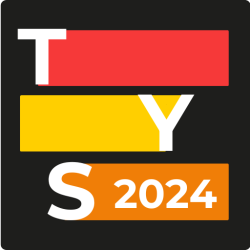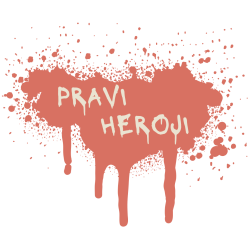The defendant, Vučićević, was ordered by the court to pay the plaintiff 100 000 Serbian dinars as restitution for the immaterial damages caused by hate speech, and the injury of the reputation and dignity of Anita Mitić, as well as a sum of 71 000 which are the costs of the court proceedings.
The Court has also stated in its verdict that the Informer article not only constitutes hate speech against Anita Mitić, but also against the Youth Initiative for Human Rights as an organization, as well as all its members, particularly those who were present during the panel in Beška.
Court decisions, especially those that protect citizens from hate speech are a fundamental pillar in the rule of law, and this particular ruling, although not legally binding, is one of the rare examples where terms which are frequently used as part of hate speech in Serbia were clearly described and sanctioned.
In the elaboration of this ruling, the Court has described and sanctioned the following terms as elements of hate speech:
- The term “Shqiptar” is widely considered politically insensitive and insulting in the Serbian language when used to describe Albanian nationals living in Kosovo and Metohia. Likewise, calling someone of Serbian nationality “Shqiptar” is, according to the court, tantamount to accusing someone of working against national interest;
- The term “jurišnici”, meaning “assault squad”, which was used in Informer’s text to label the members of the Youth Initiative for Human Rights, was described as hate speech by the court, especially considering that the Initiative as an organization works to protects human rights and democratic values;
- The Court has stated that the article represented an intent on the part of the editor in chief of “Informer” to label Youth Initiative for Human Rights activists as “enemies and a threat to the Republic of Serbia”, which the court has established was a call for violence against the activists, among whom Anita Mitić was as well.
- Likewise, accusations that the Youth Initiative for Human Rights and other organizations create “pure pre-election chaos”, that they are waging a “special war” and that they are “fascists”, were marked by the Court as an intent to label a particular group of persons as a “state threat”, and thus incite hatred towards that group among citizens and further justify discrimination, enmity and ultimately violence against that group, or more precisely, against the Youth Initiative for Human Rights activists.
- The Court has also indicated that use of terms such as ”shqiptars”, “Soros shqiptar organization” and “special war” constitute hate speech and breach the duty journalists have to harness a culture of ethics and public speech. The use of the aforementioned terms was deemed as a breach of the ban on hate speech for political and other beliefs, the values and objectives the Youth Initiative for Human Rights and Anita Mitić stand for.
It is especially worth noting that the Court has based their verdict not only on the Law on Public Information and Media and on the Serbian Constitution, but also on article 10 of the European Convention on Human Rights and Fundamental Freedoms. - The Court has also established that, by publishing this article, the principle of political pluralism as a basis for a democratic society has been breached, as well as the constitutional rights to political freedom, freedom of thought and expression.
It is necessary to restate that these terms are actively being used by public officials as well as party members in reference to their political opposition, citizens of opposing beliefs and civil society organizations, as well as the media who they perceive as their “enemies”.
Without any intent to affect the court’s decisions, the Initiative hopes this verdict will go into effect, just as the first-degree ruling the Initiative, as an organization, won against Dragana J. in July this year. By confirming this verdict, a precedent will be set for anyone who labels others as “traitors”, “shqiptar”, “jurišnik” or “fascist” as was the case in that particular article – a precedent that will not allow for those who label to go unpunished.
In this particular case, regardless of the fact that the verdict was not legally binding, citing the facts determined by the Higher Court, we demand that Aleksandar Vučić, Nebojša Stefanovićn and Vladimir Gak, as public officials and SNS party members, who has used the terms “jurišnici”, “assault squads” i “fascists” prior to the Informer article’s publishing, to publicly explain why they had deceived the public and used hate speech against Anita Mitić and the Youth Initiative for Human Rights activists, all in the name of supporting convicted war criminal Veselin Šljivančanin.
The added significance of this ruling is that it prevents further attacks against individuals’ person, dignity and integrity as a form of hate speech directed towards public personalities who defend human rights, among which Anita Mitić is as well. Targeted by these hate speech campaigns which put their safety at risk were women such as Sonja Biserko, Nataša Kandić, Jelena Milić, Borka Pavićević, Women in Black and other human rights defenders.
You may read the full Court verdict here.


